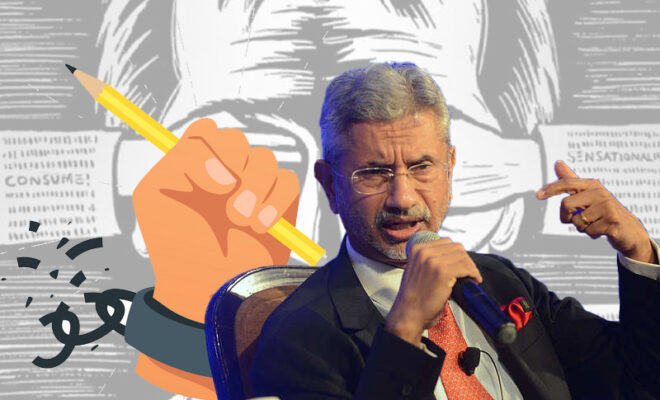Why Is The World Press Freedom Index Questionable And Not Accurate?

The WPFI ranks Afghanistan at 152nd position, higher than India (position 161). However Afghanistan has no freedom to press or media & no democracy at all.
The External Affairs Minister of India, S Jaishankar, has called the World Press Freedom Index a “mind game”, after India’s ranking of 161 out of 180 on the index was published.
Critics have previously questioned the methodology and bias of those involved in creating the ranking.
The index is published annually by the non-profit organization Reporters Without Borders, based on a questionnaire sent to various NGOs and a network of correspondents and researchers, which is used to calculate scores based on six parameters:
- pluralism,
- media independence,
- media environment and self-censorship,
- legislative framework,
- transparency, and
- quality of infrastructure supporting the production of news and information.
Alongside the questionnaire, the organization also combines the quantitative abuses and acts of violence against journalists to create the overall World Press Index score.
India’s ranking fell 11 places to 161 this year, a drop of 11 places from the previous year, while Afghanistan was ranked higher, at 152nd.
Critics of the index have previously cited the small sample size, questionable methodology and lack of transparency as reasons to challenge the rankings.
4 Biggest Faults of World Press Freedom Index
The World Press Freedom Index (WPFI) is a ranking of countries based on their respect for press freedom, as assessed by Reporters Without Borders (RSF).
India’s External Affairs Minister, S. Jaishankar, criticized the methodology and the faults of the WPFI. Here are some of the points he made:
- The WPFI is subjective and lacks transparency in its evaluation criteria. It relies on perceptions rather than actual incidents or data, and often reflects the biases of the evaluators.
- The WPFI does not take into account the complexities of the media landscape in each country, including cultural, political, and economic factors.
- The WPFI ignores the efforts made by governments to ensure press freedom while dealing with security challenges and public order.
- The WPFI often ignores the positive developments and achievements in press freedom in certain countries, focusing only on the negative aspects. It tends to single out specific countries for political reasons or ideological biases.
- The WPFI can be manipulated by certain groups or individuals to target specific countries or governments. It can also be misused to create a negative image of a country or to justify external interference or sanctions.
Thus the WPFI needs to upgrade itself to present clear and transparent data without any political agenda. The organization must focus on the media landscape in each country and it should not be misused to create a negative image of any country.
Also Read:- EAM Jaishankar On Pakistan FM Bilawal Bhutto At SCO Summit



